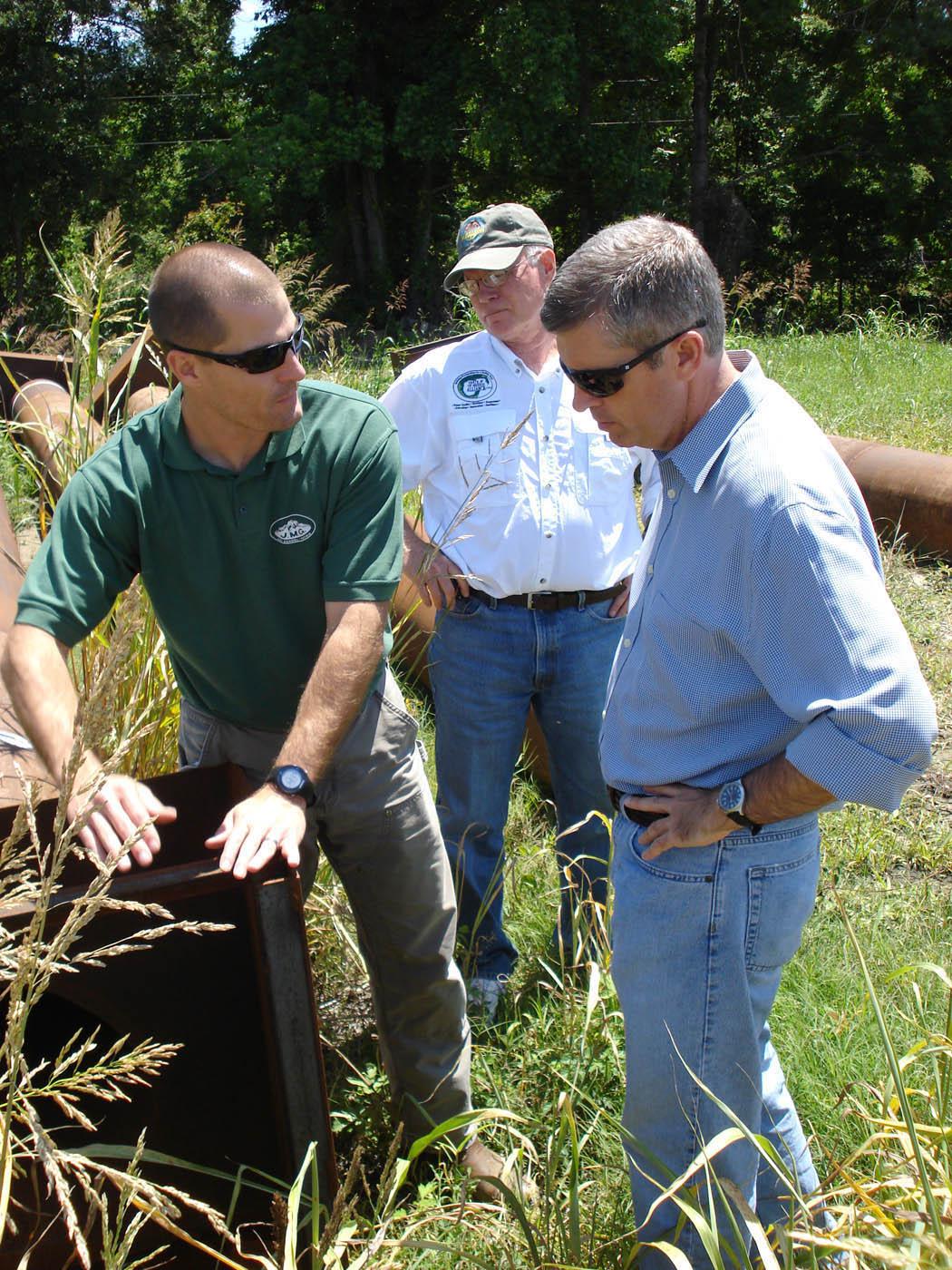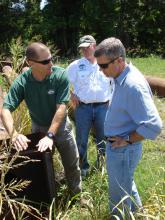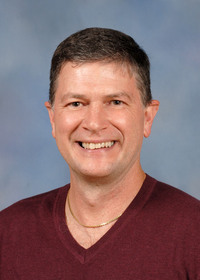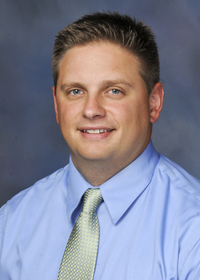Information Possibly Outdated
The information presented on this page was originally released on May 22, 2012. It may not be outdated, but please search our site for more current information. If you plan to quote or reference this information in a publication, please check with the Extension specialist or author before proceeding.
MSU program seeks demonstration sites
MISSISSIPPI STATE – Some skeptics think agricultural production and natural resource conservation are incompatible, but a Mississippi State University scientist is committed to proving them wrong, one farm at a time.
Robbie Kroger, assistant professor of aquatic sciences in the MSU Department of Wildlife, Fisheries and Aquaculture, is the co-founder and spokesperson for a new initiative called Research and Education to Advance Conservation and Habitat, or REACH.
“REACH is for the farmer, by the farmer,” Kroger said. “Our goal is to create a network of cooperative farms with different types of agricultural practices that will showcase conservation practices, how well they work for agriculture and the environment and serve as models for sustainable methods.”
Kroger said REACH experts share scientifically researched best practices with producers and landowners. Over time, as farmers develop and implement landscape stewardship plans, REACH will collect a unique body of documentation that shows the benefits of conservation management.
“REACH is a timely program that will help us answer very relevant research questions about water resource management and improvements at the farm level,” said George Hopper, dean of MSU’s College of Agriculture and Life Sciences and director of the Mississippi Agricultural and Forestry Experiment Station. “It will also leverage our research expertise across the state to further our understanding of pertinent local, state and regional concerns.”
Kroger said similar programs have been launched successfully in other states. Mississippi’s REACH is a collaboration between MSU’s Extension Service, MAFES, and the Forest and Wildlife Research Center.
“REACH is the perfect marriage of research and outreach, and its sole purpose is to help the farming community,” Kroger said. “REACH will be a service to Mississippians to help improve landscapes, and it will showcase what a good job landowners are doing.”
In the Delta, REACH will partner with Delta Farmers Advocating Resource Management.
“Delta F.A.R.M. is an organization that helps farmers with on-the-ground conservation delivery,” Kroger said. “REACH will be the supporter that uses research to document the benefits of these efforts and creates outreach materials to share the results.”
The program reflects a growing concern about conserving natural resources.
“Current policy discussions at both state and federal levels indicate there is a need for increased accountability on the impact of production agriculture on the environment,” he said. “We also need to document what works and what doesn’t, and what practices will improve natural resources while meeting landowners’ needs.”
Gary Jackson, director of MSU’s Extension Service, said REACH will help the state’s landowners improve landscape stewardship and agricultural production systems by giving them hands-on support.
“Critical to conservation practice implementation and adoption is the understanding of how it works, why it works and the ability to deliver the relevant information to those it can benefit,” Jackson said.
REACH plans a multi-year, multi-farm program that will generate research-based results, create opportunities for field days and demonstration sites, provide justification for federal investments in conservation, and support the health of Mississippi’s water resources, both inland and downstream.
For more information or to enroll a farm in REACH, call Kroger at (662) 325-4731.





